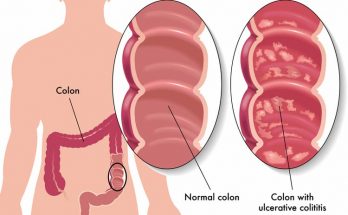Pregnancy is a wonderful and exciting time for any woman. It can be a frightening experience as well. The responsibility of growing a child within your body can be overwhelming for some women, especially those carrying their first child. Small pains or cramps may send some women to the nearest emergency room and other may choose to take a sit and wait approach. There are some guidelines to follow when there is any cramping or pains around the abdominal area.
A woman may experience cramping throughout the entire pregnancy. It is important to gauge the severity and when the cramping occurs. A call to the ob/gyn is always a good idea. In the first trimester, a woman may experience cramping as the fertilized embryo is implanting itself to the uterine wall. This generally happens within a couple of weeks of becoming pregnant. Gas and constipation may also cause a cramping sensation.
Cramping accompanied with spotting or bleeding after a confirmed pregnancy test may indicate a miscarriage. It is important to seek medical care in these situations. It can also mean an ectopic pregnancy has happened. This occurs when the fertilized egg does not make it to the uterus and implants itself within a fallopian tube. This can be a potentially dangerous situation and will require medical attention.
Cramping during the second trimester is generally due to ligaments and muscles being stretched. The uterus has to expand to make room for the baby. Gas and constipation are very common during this stage of pregnancy and may cause some cramping. Eating a healthy, high fiber diet and drinking plenty of water can help alleviate the constipation.
During the third trimester, a woman may experience mild cramping sensations for a number of different reasons. Braxton hicks contractions are often the culprit of these late term cramps. This is often referred to as false labor. Bloating, constipation and gas are common ailments during the third trimester. Eating smaller meals often through the day can help alleviate some of the pain.
A woman who experiences cramping with back pain and diarrhea may be starting labor. If this happens more than two weeks before the due date it is important to get to the hospital immediately. There are medicines that can be used to try and stop preterm labor.
An ovarian cyst may also cause cramping during any stage of the pregnancy. Most times these are not harmful and can be left alone during the pregnancy. If the pain is extreme or causing other complications a doctor may opt to do surgery to remove the cyst.
It is very common to experience some type of cramping during pregnancy. Mild cramping is a part of pregnancy that all women endure. Severe cramping should always result in a call or visit to a doctor. Eating a healthy diet can help alleviate most of the causes of cramping. A diet that is full of greasy foods will result in extra gas and bloating.
Occasionally, some prenatal vitamins may upset a woman’s stomach and cause cramping as well. Iron is an important part of a pregnant woman’s nutrition but can lead to constipation or gas. A doctor may advise switching to a lower dose or slow releasing iron supplement in these situations.
Most doctors will allow for Tylenol as a pain reliever to treat mild cramping. A heating pad placed over the abdomen can also provide some relief. A hot bath can also help relax the muscles and relieve the cramping associated with pregnancy. It is always best to ask your doctor before trying any kind of self medication remedies.

